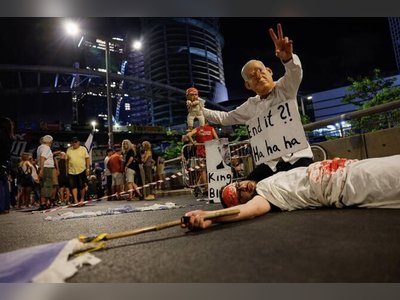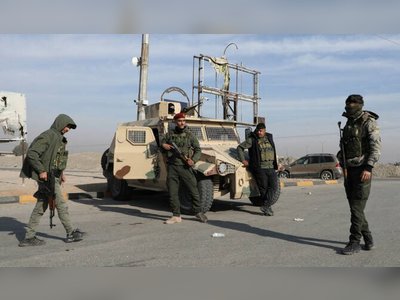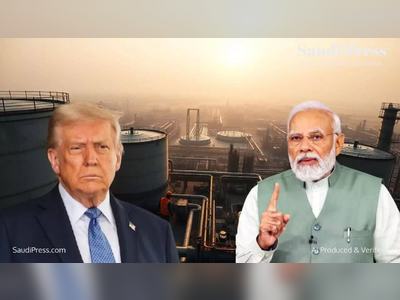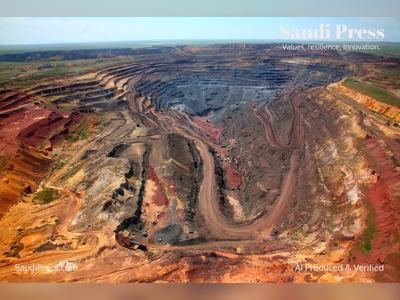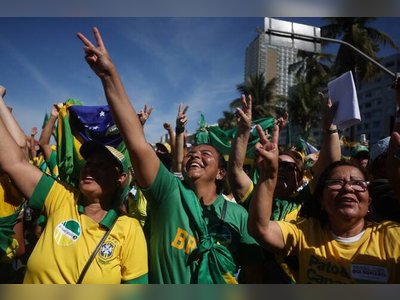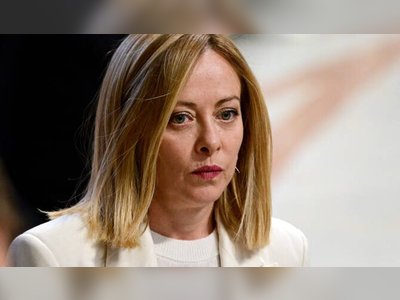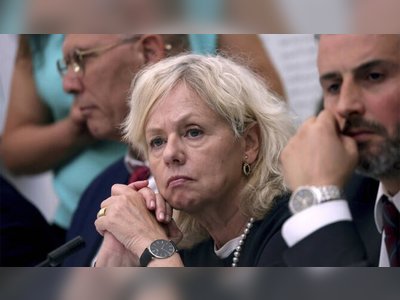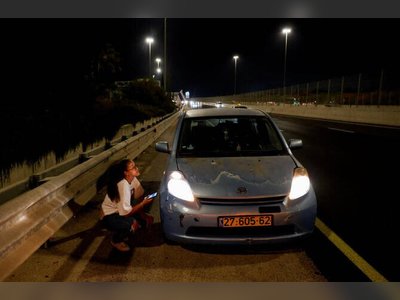
Thousands Gather in Srebrenica to Mark 30 Years Since Genocide Against Bosniak Muslims
Scores of international officials and dignitaries attend the commemoration ceremonies as Europe grapples with the legacy of the Balkan conflict.
SREBRENICA, Bosnia-Herzegovina: Thousands of people from Bosnia and around the world gathered in Srebrenica to mark the 30th anniversary of a massacre there of more than 8,000 Bosniak Muslim boys and men—an atrocity that has been acknowledged as Europe’s only genocide after the Holocaust.
Seven newly identified victims of the 1995 massacre were laid to rest in a collective funeral at a vast cemetery near Srebrenica, alongside more than 6,000 victims already buried there.
Funerals for victims are held annually as remains are found in dozens of mass graves around the town.Relatives of the victims face challenges in burying their loved ones due to the scattering of remains across multiple grave sites.
Mirzeta Karic expressed her pain at only being able to bury a bone fragment from her father, who was among 50 family members killed.
The killings began on July 11, 1995, when Bosnian Serb fighters overran Srebrenica's safe zone during the interethnic war in Bosnia.After seizing control of the town, the fighters separated Bosniak Muslim men and boys from their families and executed them within days.
The bodies were then dumped in mass graves that were later disturbed with bulldozers to hide evidence of the war crimes committed.
The UN General Assembly adopted a resolution last year to commemorate the Srebrenica genocide on July 11.International officials including European Council President Antonio Costa and Britain’s Duchess of Edinburgh attended the commemoration ceremonies, emphasizing the importance of remembering victims to prevent such atrocities from recurring.
Dutch Foreign Minister Caspar Veldkamp expressed humility for the role UN troops played during the massacre in Srebrenica.
Munira Subasic, head of the Mothers of Srebrenica association, urged Europe and the world to combat hatred, injustice, and killings.An exhibition on the eve of the anniversary displayed personal items belonging to victims found in mass graves over the years.
The conflict in Bosnia began in 1992 with Bosnian Serbs rebelling against the country's independence from Yugoslavia.
Over 100,000 people were killed, and millions displaced before a peace agreement was reached in 1995.Bosnia remains ethnically divided, with Bosnian Serbs and neighboring Serbia not acknowledging the Srebrenica massacre as genocide despite UN court rulings.
Convicted and sentenced for genocide are Bosnian Serb political and military leaders Radovan Karadzic and Ratko Mladic, along with others.
Serbian President Aleksandar Vucic expressed condolences while calling the Srebrenica massacre a 'terrible crime.' European Council President Costa stressed that denying such horrors only poisons the future.
Seven newly identified victims of the 1995 massacre were laid to rest in a collective funeral at a vast cemetery near Srebrenica, alongside more than 6,000 victims already buried there.
Funerals for victims are held annually as remains are found in dozens of mass graves around the town.Relatives of the victims face challenges in burying their loved ones due to the scattering of remains across multiple grave sites.
Mirzeta Karic expressed her pain at only being able to bury a bone fragment from her father, who was among 50 family members killed.
The killings began on July 11, 1995, when Bosnian Serb fighters overran Srebrenica's safe zone during the interethnic war in Bosnia.After seizing control of the town, the fighters separated Bosniak Muslim men and boys from their families and executed them within days.
The bodies were then dumped in mass graves that were later disturbed with bulldozers to hide evidence of the war crimes committed.
The UN General Assembly adopted a resolution last year to commemorate the Srebrenica genocide on July 11.International officials including European Council President Antonio Costa and Britain’s Duchess of Edinburgh attended the commemoration ceremonies, emphasizing the importance of remembering victims to prevent such atrocities from recurring.
Dutch Foreign Minister Caspar Veldkamp expressed humility for the role UN troops played during the massacre in Srebrenica.
Munira Subasic, head of the Mothers of Srebrenica association, urged Europe and the world to combat hatred, injustice, and killings.An exhibition on the eve of the anniversary displayed personal items belonging to victims found in mass graves over the years.
The conflict in Bosnia began in 1992 with Bosnian Serbs rebelling against the country's independence from Yugoslavia.
Over 100,000 people were killed, and millions displaced before a peace agreement was reached in 1995.Bosnia remains ethnically divided, with Bosnian Serbs and neighboring Serbia not acknowledging the Srebrenica massacre as genocide despite UN court rulings.
Convicted and sentenced for genocide are Bosnian Serb political and military leaders Radovan Karadzic and Ratko Mladic, along with others.
Serbian President Aleksandar Vucic expressed condolences while calling the Srebrenica massacre a 'terrible crime.' European Council President Costa stressed that denying such horrors only poisons the future.


